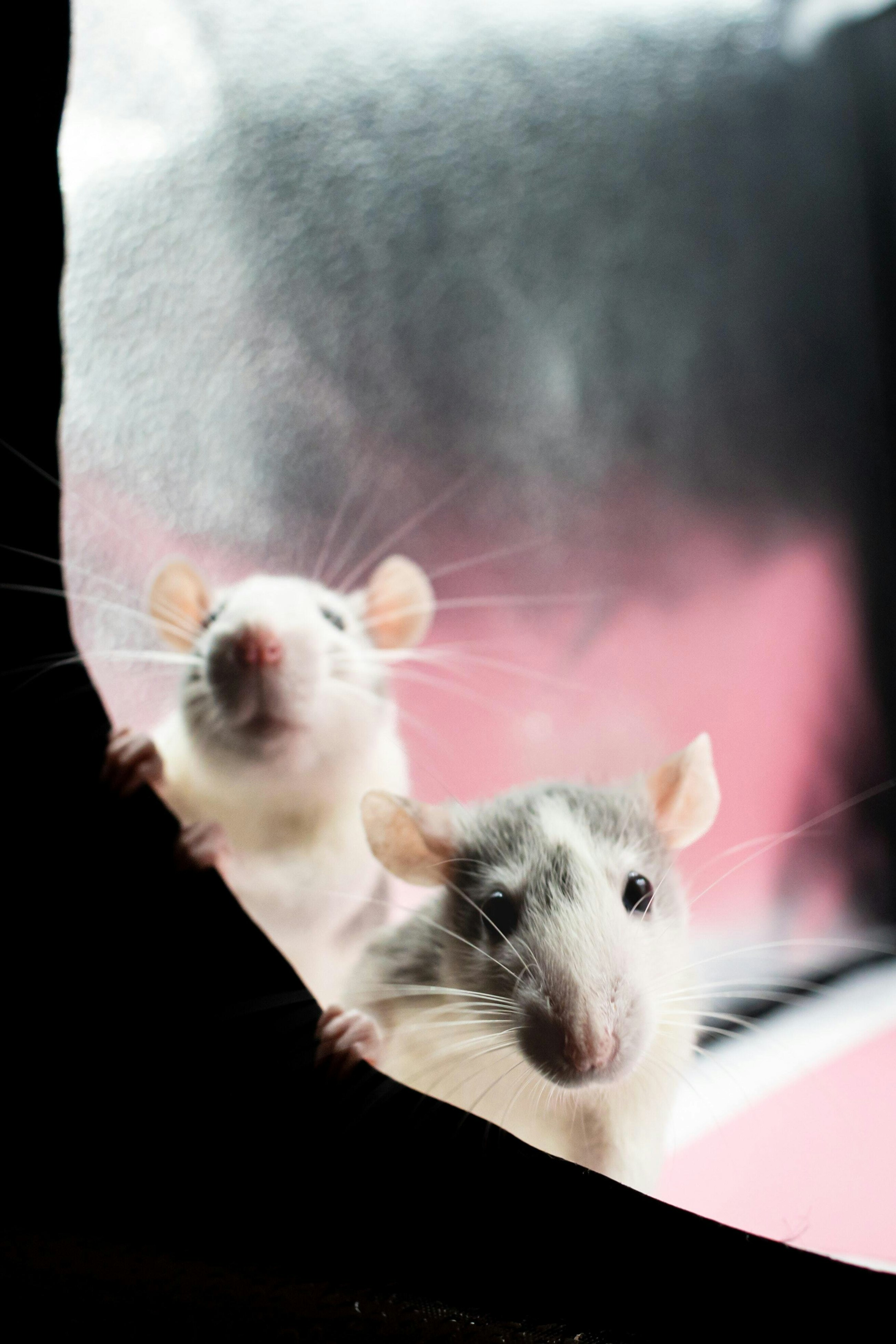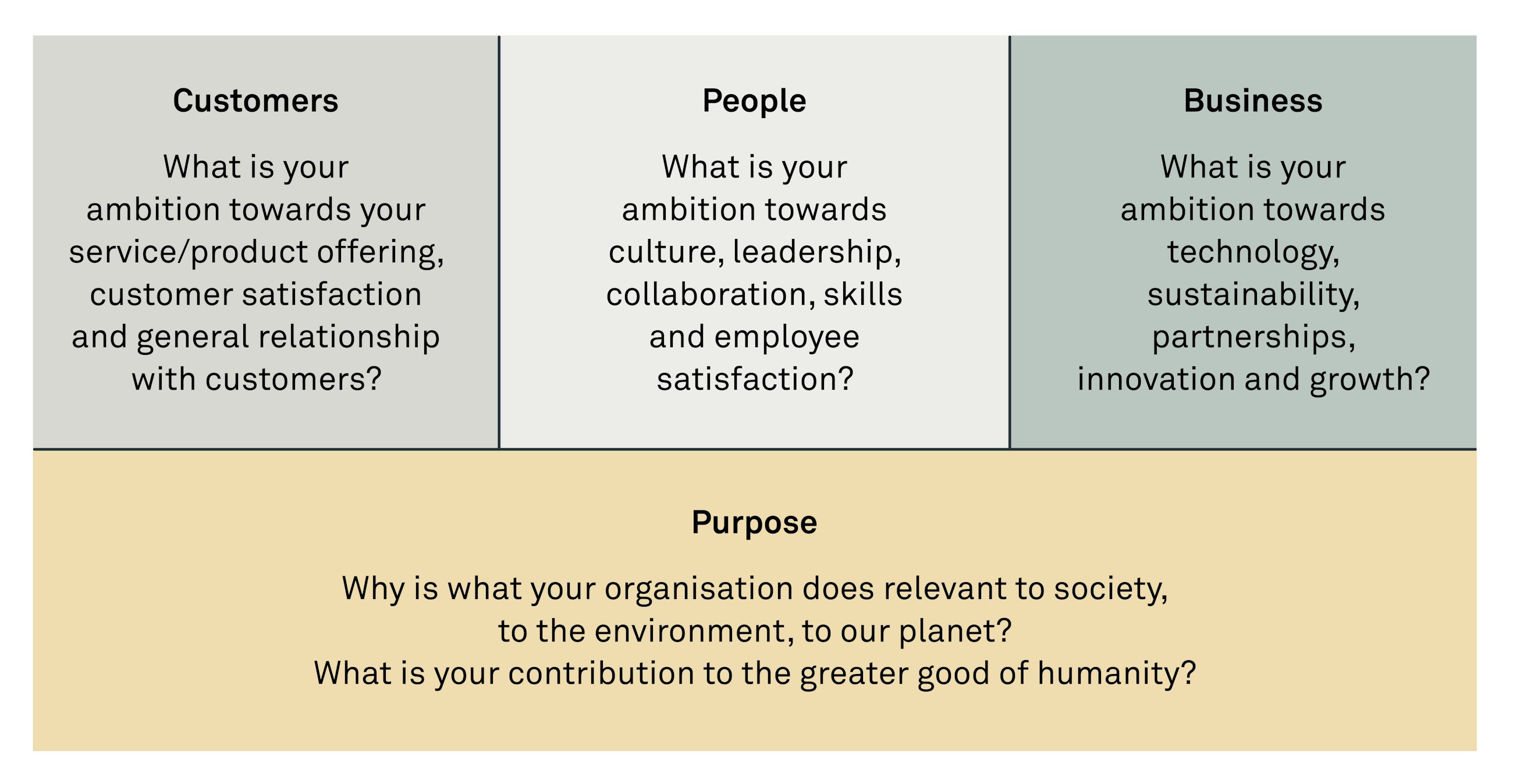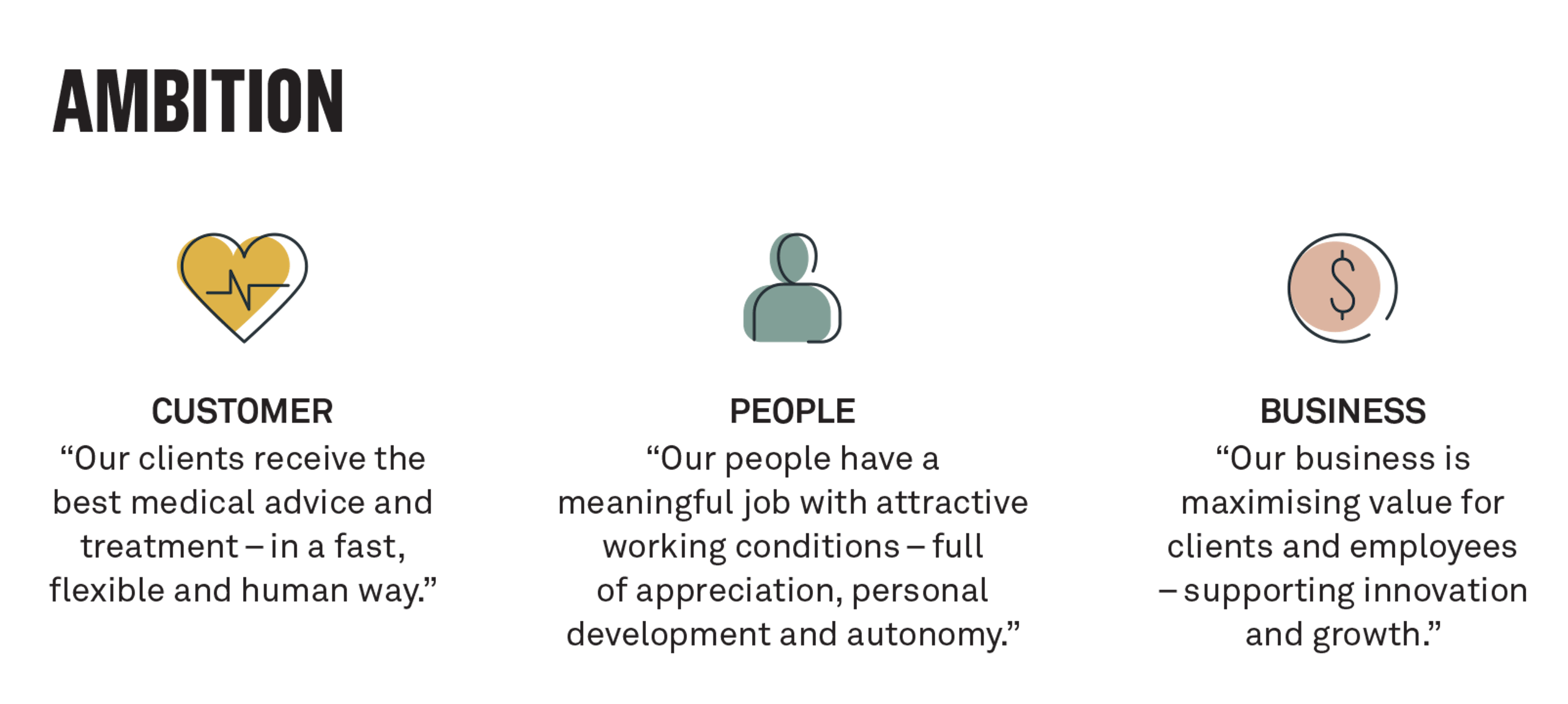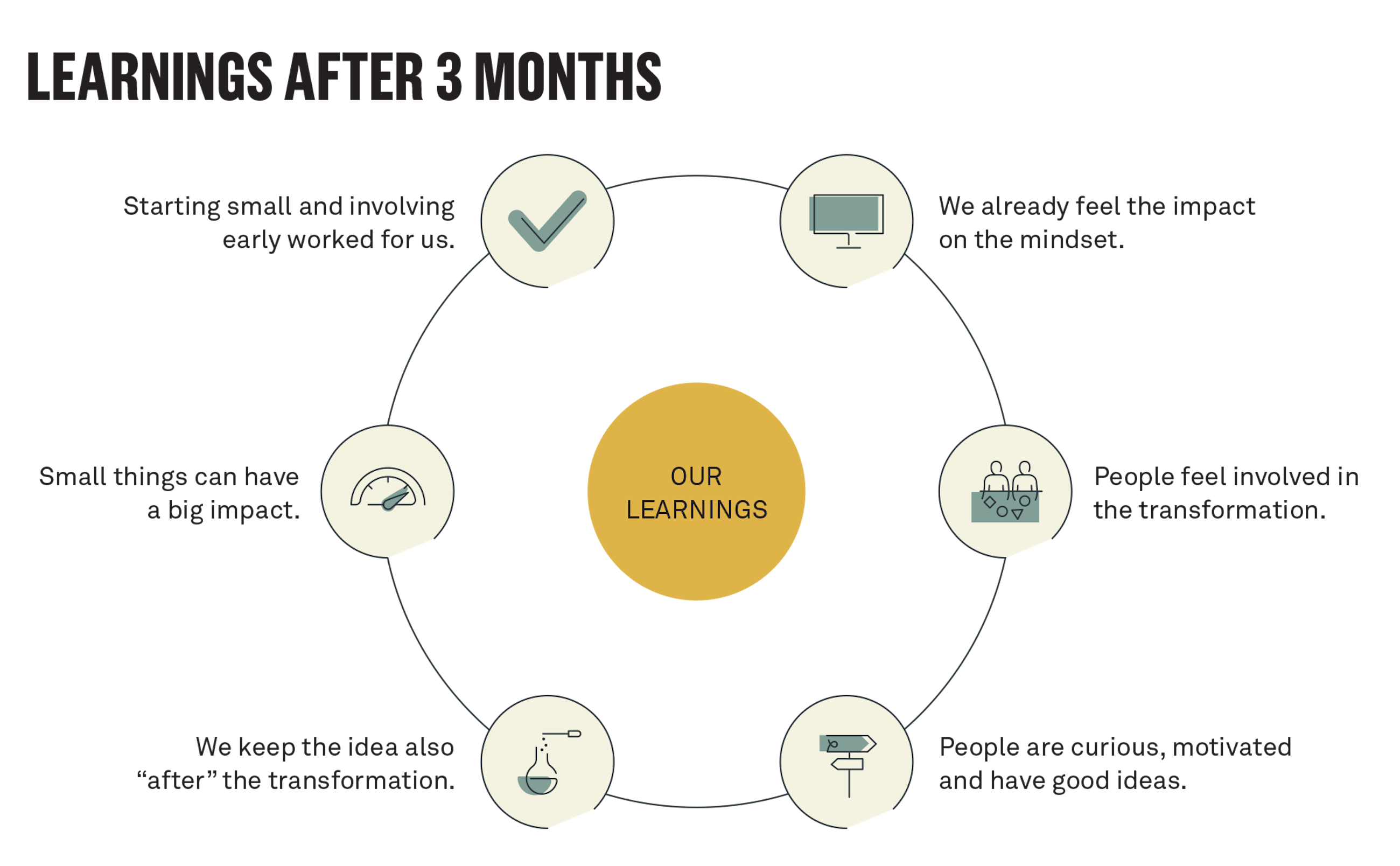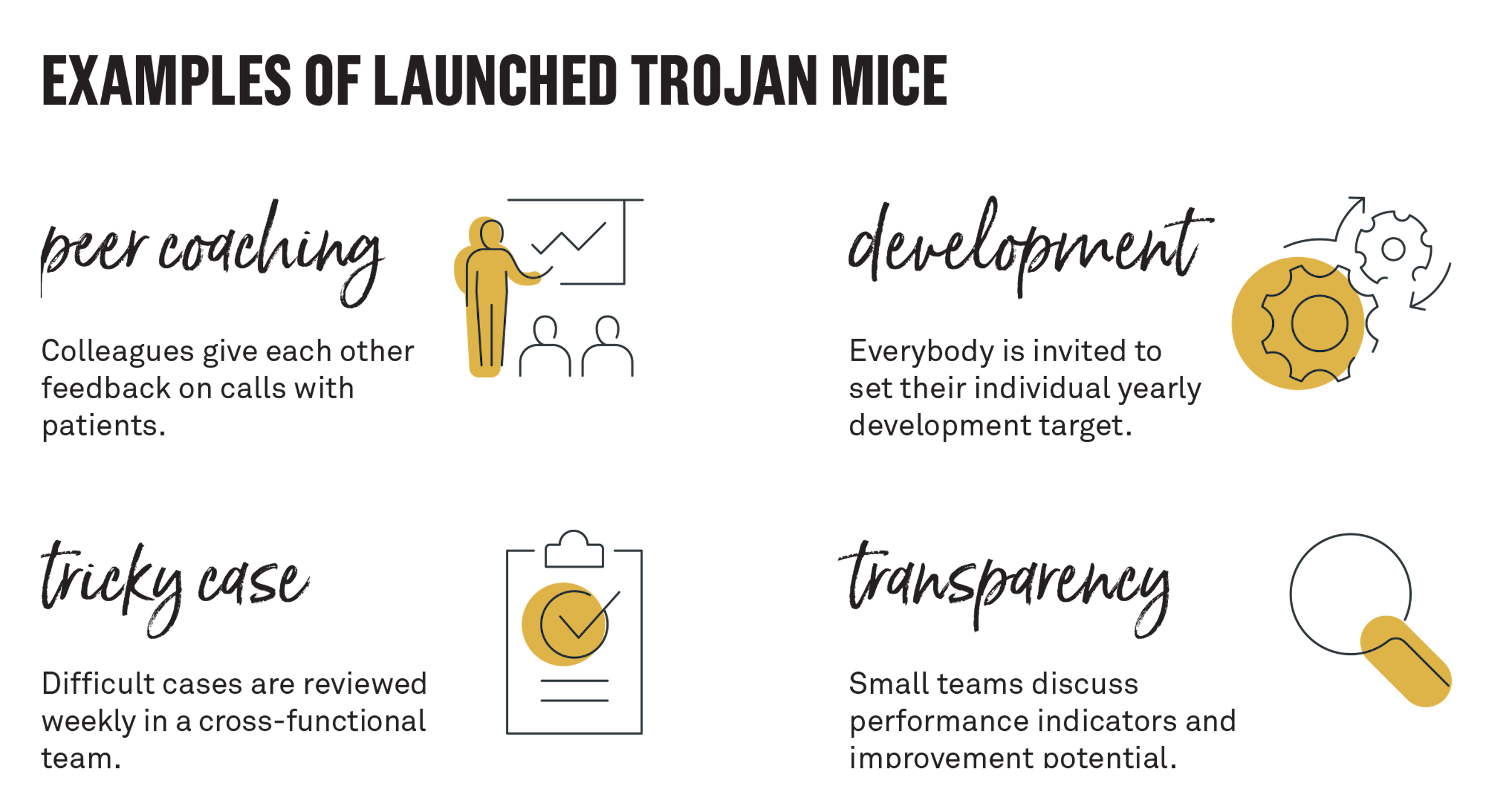28 May 2021
Many organisations strive to transform their business to stay relevant in our complex world. Managers have a clear picture of what the future should look like for their company. Still, more often than we like, employees stay unengaged and uninspired. How can we transmit the spark?
Set the direction, not the future state
Most managers acknowledge that the future cannot be predicted. What we decide today might not be relevant tomorrow. Still, many leaders keep a detailed description of the desired future state of the organisation and a plan for how to get there in the drawers of their desks. They might be smart and well-thought-out, but they rarely come to life.
Making detailed plans for the future is a bad idea for two reasons:
- They become irrelevant very quickly because our environment, our competitors, our clients, our internal processes and regulations change.
- They do not inspire people – least of all the ones who are supposed to bring them to life.
Instead, think about the ambition for your organisation. What does it drive? What is its ultimate transcendent purpose? What is the North Star that gives everybody orientation for everyday decision-making? Once the direction is set, small actions called “Trojan mice” start to spread the desired change within the organisation.
What are Trojan mice?
Trojan mice are small experiments that continuously challenge and test assumptions with the intent of creating learning and insight.
A good ambition covers three elements:
It all starts with the customer and the experience you desire to design for them. While one organisation strives to be the most innovative partner, another one might position themselves as the most knowledgeable specialist. The importance of culture, social connection, engagement and the approach to leadership are based on conscious decisions that set the direction for the future.
The ambition serves as guiding principles for people’s daily decisions and actions and is founded on the overall purpose of an organisation. If people can identify with this purpose, engagement and ownership for change are far more likely to happen.
Why a good ambition works
The direction that leaders set for the organisation will shape the actions people take every day. Close to 70% of transformations are unsuccessful, and a key factor in this is the underestimation of employees to create truly sustainable impact.
Our experience shows that prerequisites of successful transformations are:
- Leadership is defined by setting the direction, explaining the “why” and removing impediments.
- People are involved early, empowered to act and take decisions.
- Indicators are in place – transparent and comprehensive to visualise progress.
- Failure is seen as an opportunity to learn.
- Transformation is seen as a journey with numerous small steps (not as a “big bang”).
In his studies, Daniel Pink (Drive: The Surprising Truth About What Motivates Us, 2009) uncovered “Autonomy”, “Mastery” and “Purpose” as the main drivers of human motivation. A clear direction and empowerment of people are consequently the seeds for emerging change and long-lasting engagement.
How mice empower employees and contribute to successful transformations
Successful transformations use local expertise as key input. Local employees should be encouraged and inspired to look at their own processes from a different perspective.
While many organisations acknowledge the importance of involving and empowering their employees throughout a transformation, there are only few that truly know how to do this. Involving employees early in the transformation empowers them to actively drive solution-finding and, as a result, sustainable change.
To bring the organisation’s ambition to life, employees are invited to experiment and learn by designing and launching small experiments that work as “Trojan mice”, gradually penetrating the organisation.
This is the foundation of a successful Trojan mice setup:
- Everybody can contribute with ideas to get one step closer to the organisation’s ambition.
- Small risk-free experiments are designed and carried out by small self-organised teams.
- The teams set up result-oriented hypotheses and prototype these across the organisation to tackle specific challenges with high energy.
- Throughout the experiments, the effect is measured, and Trojan mice can be multiplied, customised or stopped.
- Experiments allow for quick results, and learnings are captured along the way.
Trojan mice instead of Trojan horses
Unless we are willing to experiment, we cannot expect big breakthroughs. Phased implementation of a single big idea acts in reality just like a Trojan horse. A sneaky way of introducing a single idea as a method of solving a complicated problem. This sort of phased implementation is certainly not an experimental “safe to fail” pilot to test different ideas. Unlike a Trojan horse, a Trojan mouse’s job is not to win the war all at once; its job is to test the waters and inform future tactics. Because there are many mice rushing the gates, it is also more likely that some of these tests will come back.
The right combination of experiments with the best energy and desired results in line with the organisation’s ambition is quickly rolled out across the organisation.
Trojan mice quickly generate high energy, implementation dynamics and a can-do mentality of the participants. They empower employees to actively drive solution-finding and implementation, to take responsibility and to adopt the method at an early stage. Concrete and result-oriented prototypes can be rolled out quickly, enabling a fast implementation, quick results and durable change.
Case example
Exploring Trojan Mice
With a Swiss provider of telemedical services
Start transmitting the spark today
The spark is transmitted by involvement and engagement. Set the direction and trust people to find the right way to get there. Trojan mice infiltrate the organisation in an organic way, avoiding the feelings of being overwhelmed, detached or not concerned. Transformation concerns everybody within the organisation and should be shaped as such.
There is no guarantee that things will always go the right way. Thanks to the small scale and therefore minimal risk of Trojan mice, failure is OK and can become part of an organisation’s culture.
Take the first step and launch your first Trojan mouse today.
